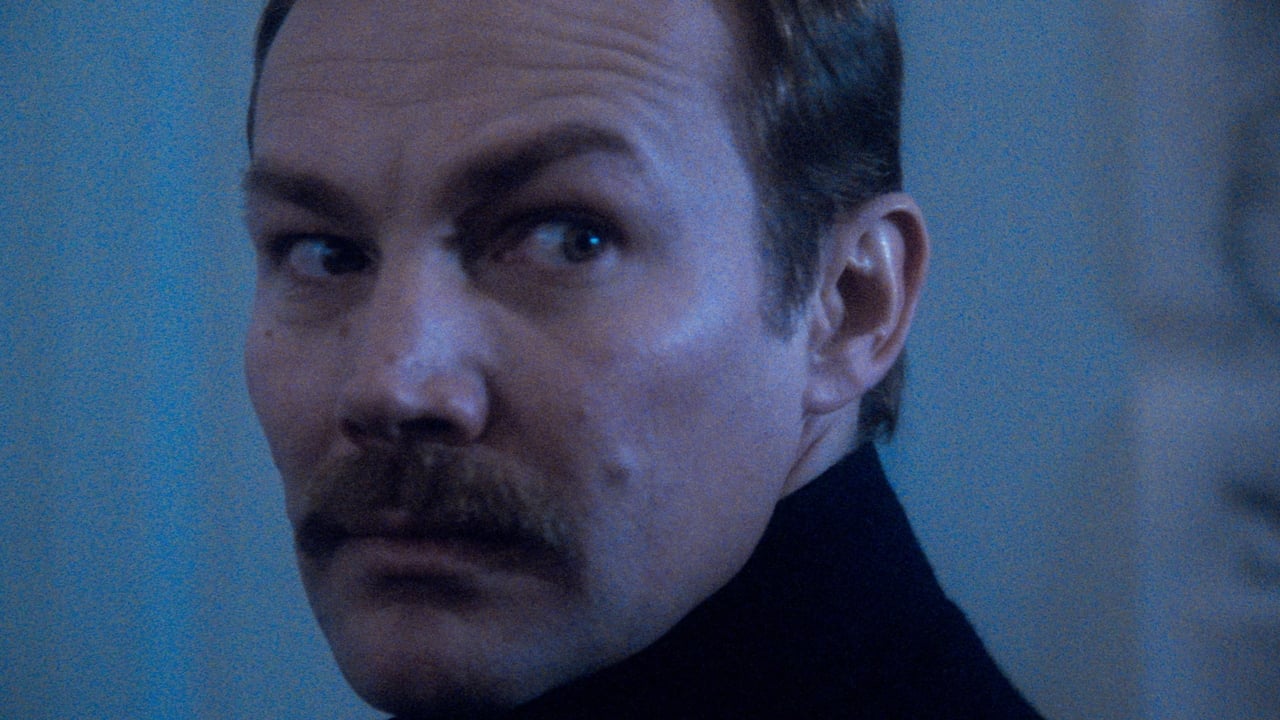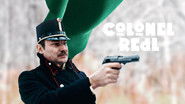kayaker36
Does Brandauer overact as one commenter has charged? At some parts of this brilliant, enigmatic film it could be argued that he does. But some histrionics might be expected from a man alone in a room who has been ordered to shoot himself and be quick about it.This is as much a political movie as a biographical one. It takes many liberties with the historical record. The generally accepted version is that Alfred Redl was being blackmailed by the Russian secret service which had learned of his homosexuality. There are NO Russians in this movie. That Redl was homosexual is only obliquely stated until the final thirty minutes. Indeed, before that he has relations with several women: a Vienna prostitute who acts the Happy Hooker indeed and the (married) sister of a fellow officer.In this film the poor performance of the Austrian armies in World War I is explained by an officer corps more concerned with drinking, card playing and skirt chasing than with military matters. Redl's handing over to his Russian controllers the troop dispositions for the Austrian armies is generally believed to be the cause of the losses during the opening stage of the War. The doomed Archduke Franz Ferdinand's only fault supposedly was that he lacked charm. Here the veteran German actor Mueller-Stahl portrays the **Thronfolger** as a political schemer, a shabby little man (he always appears unshaven) trying to hold the Monarchy together through trumped-up conspiracies and the playing off of one nationality against another.What this picture does best is portray the hollow grandeur of Habsburg Austria during its final years. The sets are magnificent. In one telling scene early in the picture, the boy Alfred, invited to an aristocratic home, spills some coffee and **four** servants come to clean up the spill.One minor quibble: this German-language movie is set in the Austrian Empire, much of it in Vienna the capital, yet no one sounds Austrian. The accent is very different from High German (Americans may compare Kissinger and Schwartzenegger). It would be like "Gone With the Wind" with all the Southerners speaking a kind of Oxford English.
Robert J. Maxwell
The film traces the military and romantic careers of Colonel Alfred Redl from his humble beginnings, through a military academy, into the Austro-Hungarian army, to the guileful environment of high political intrigue, to his ultimate altruistic suicide in 1913. It's supposedly based on a true story but since so little seems to be known about the true story, the epistemology of the plot is questionable. Nobody really knows what happened.Brandauer delivers a remarkable performance, displaying great range, especially for a man with a face of such ordinariness. He looks like a guy who should be managing the produce section of a supermarket. Yet for all the talent of Brandauer and director Szabo, we don't get to know too much about what's going on inside Colonel Redl's head. The role doesn't give him a chance to pour out his soul to anyone, and, indeed, it's improbably that the real Redl would have done any such thing. His marriage, to a good-looking babe who loved him, was a matter of convenience. His friendships with his colleagues was constrained out of necessity because of Redl's latent homosexuality and because, after all, real men don't talk about their feelings -- they blow their brains out, but they don't talk about their feelings. Example: How does Redl feel about his early youth in the provinces? Well, while passing through his home town, he instructs the driver to pass the old house in which he spent his childhood, and he rubs a vacancy in the frosted window so that he can stare at it without expression for about five seconds. What's going on? What wheels and gears are turning in his memory, if any? It's anyone's guess.Nice score. Nice period decor and wardrobe. Nice performances from the other players, especially Armin Mueller-Stahl as ruthless Archduke Franz Ferdinand. He has such handsomely clear blue eyes, and he's soft spoken, reasonable, and as treacherous as a rattlesnake. Not that it does him much good, if you remember what started World War I. Elegant music -- Strauss and Chopin. Great marches, full of traps and whistling piccolos and irony. Makes you want to become an officer in the army in 1913 so you can shoot yourself.The film is paced kind of slowly and the intrigue is never overstated, so a certain amount of patience and attention is required. If anyone has a mind adjusted to the lightning-fast editing of a modern action movie, he's unlikely to find this film satisfying. The rest of us will find it interesting and, in the end, rather tragic.
futures-1
"Colonel Redl" (German, 1984): Starring Klaus Marie Brandauer, directed by Istvan Szabo. This is the second film of a trilogy. (The first, "Mephisto", the third, "Hanussen" I do not own, but will try to find for rental.) Here we are in Germany again, but before WWI. A young man decides that the only way to raise himself from his peasant roots is to enter the aristocratic military world and is willing to do anything to get in, stay in, and advance in. This he does, but there's always The Price. He slowly loses those things and people which held any meaning or joy for him. He finds himself an amateur in a world that is completely Darwinian, and long-practiced in the art of manipulation. Like "Mephisto", the ladder climber seems to reach spectacular heights, only to be tossed down when it most serves those who were never out of control. These films of Szabo start light, start fluffy, and slowly change into foreboding, evil, hopeless stories with NO optimism towards the human spirit, organized groups of humans, or Time being a teacher. They are very insightful essays on these subjects.
Guy_T
Brandauer again shows why reviews of his work often include the word 'magnetic' - You just don't take your eyes off him. His range is remarkable, his control of the minutest gesture superb, the subtlety of his physical screen presence majestic.Szabo's direction is again precise but not heavy handed. If this doesn't have quite the sweep or sting in the tail of their previous collaboration, Mephisto, it is still one of the finest European films of its time.The story is superbly crafted; to leave Muller-Stahl's Archduke Franz Ferdinand out until the last hour or so is an outstanding narrative technique, and if Muller-Stahl's performance is a trifle one-note, that's as much due to narrative constraint as actor ability - he's still pretty effective, and its one of his best roles.Szabo has an ability to investigate history in a curiously personal and touching sense of the individual, but leaving that individual dispassionately, and gazing at him objectively; thus what comes across is a really detailed and involving character struggling against an incredible force of inevitability. Like Visconti, broad strokes, but painted in the minutest of details - only unlike Visconti, full blooded and direct.It's at times witty, literate and touching, but always beautiful.


 AD
AD



